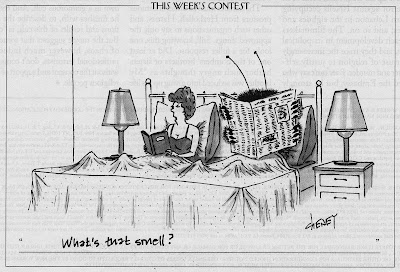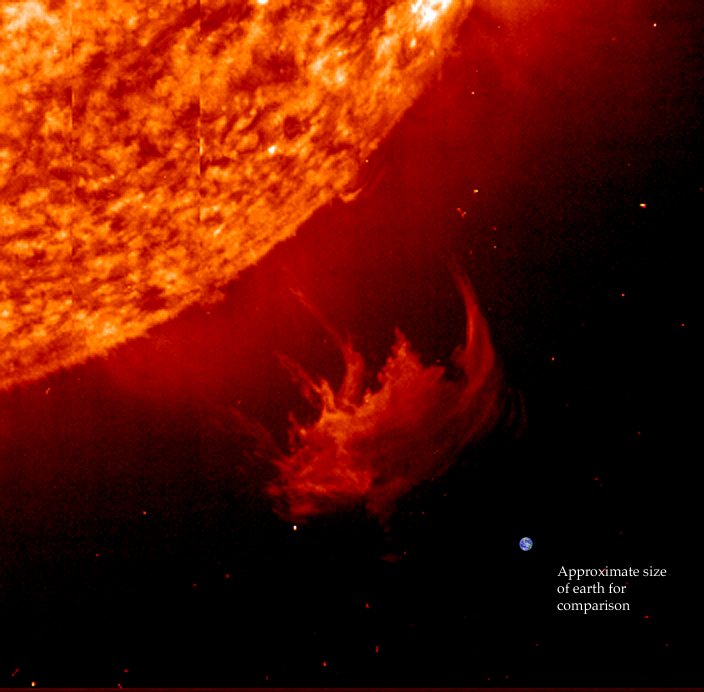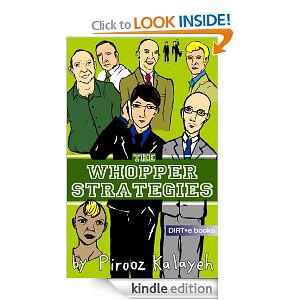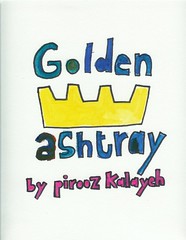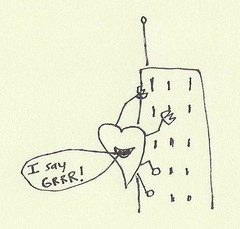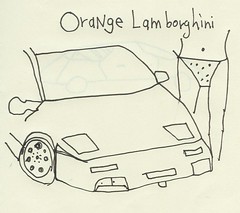
Chris Killen is an author from Machester, England. His award winning blog and upcoming novel with Canongate have catapulted him into the heart of the current literary scene in England and America. Over the past several months, we were able to talk about his band, The Miniature Swans, life as a possible filmmaker, and his upcoming release, The Bird Room.

Pirooz Kalayeh: Alice has a past and freckles. Darren is a jock who smells like aftershave. They have thoughts that operate like text messages. In fact, you employ narrative transitions with Internet language quite frequently. There are the double clicks to delete people's faces, and the protagonist's internal dialogue mapped by Alice's freckles as lines made into trapezoids crisscross on the page like the naked back you help us see. It is quite refreshing. The jumps match my Internet mind's way of maneuvering through the world. It also echoes Richard Brautigan's use of metaphor, when the preposterous suddenly becomes unified with reality. In a sense, I can see how both your styles operate as simulacrums, where a reader can enter at will, and, like the Internet, from any direction.
How much was the Internet a factor in your choice of transitions and the non-linear path of The Bird Room? Were you hoping to reflect an experience similar to surfing, or were your choices simply a product of how love operates in leaps and illogical bounds?
Chris Killen: I like that you used the word 'illogical'. I'm interested in illogical and irrational acts and decisions. This novel went through a number of drafts. At first it was completely achronological – a series of disconnected 'scenes' which I expected the reader to try and piece together afterwards. It was supposed to be like thoughts – how thoughts and memories aren't chronological. But I didn't really think about whether it would be fun to read something like that, and when I showed early bits of the draft to people, most of them just felt confused.
So I decided, by the second draft, that it was more important for the novel to be fun to read than it was to be 'clever', so I put the scenes in sort of chronological chunks; although the whole thing still isn't completely in order. But hopefully it at least makes some sense now.
You're right, there's a lot of internet stuff in there, and yes, I think that has been an influence on some of the language I've used, but as for the structuring, no, I think it would still be structured this way even if I didn't spend so much time online, or if there was no internet. The language might be different, but the structure would probably be the same.
PK: That's interesting that you proceeded in a very disparate fashion. Rikki Ducornet once advised me to follow the same route with my own work. From her perspective, the unmapped could lead to even more suspense for an audience, because an author proceeding in such a fashion would also be in a state of quandary as to what would happen next; thereby, allowing this truth to operate as a function of integrity as well. I would say this rings doubly true in your case, since you are interested in both your novel evolving from an unstructured perspective, as well as how the illogical and irrational acts of your characters will take shape. Would you say your interest in the irrational is for a hope to unveil how doubt itself is ever present in relationships and the human condition, or are you interested in revealing other truths in its exploration?
Chris Killen: The main thing I'm interested in – or at least the thing I was most interested in when I was writing The Bird Room – was the urge towards self-destruction. If I look at the novel now, and think about it for a while, that seems to be the element that stands out most: self-destruction, sometimes on a sub-conscious or unconscious level. 'Self-destruction' sounds kind of serious and over-the-top, though. I will try and explain a bit more … It's like the feeling of standing next to a river, and thinking 'I could just throw myself in,' or of having an important business meeting or something and thinking to yourself, 'I could just say something completely inappropriate here,' or, 'I could pick my glass of wine up and throw it in this person's face.' I think things like that a lot in my life. I think most people do. I don't act on them, but in my novel, the narrator at times acts on these urges.
 Also, I think people are sometimes motivated unconsciously towards things that will 'harm' them or 'worsen' their situations. Like a person being attracted to a 'bad' character type; they know they should be in a relationship with a 'nice' person, someone who treats them right, and they go out with a string of 'bad' people, who are cruel to them and mess them around. Why? I have no idea. Maybe they like the drama. Maybe they seek some kind of punishment. I don't want to ever completely answer these things, flat-out. To me, that would be too simplistic psychologically, and also kind of preachy and putting myself 'above' the characters. I think that people are often motivated by about five or six conflicting feelings and urges at the same time.
Also, I think people are sometimes motivated unconsciously towards things that will 'harm' them or 'worsen' their situations. Like a person being attracted to a 'bad' character type; they know they should be in a relationship with a 'nice' person, someone who treats them right, and they go out with a string of 'bad' people, who are cruel to them and mess them around. Why? I have no idea. Maybe they like the drama. Maybe they seek some kind of punishment. I don't want to ever completely answer these things, flat-out. To me, that would be too simplistic psychologically, and also kind of preachy and putting myself 'above' the characters. I think that people are often motivated by about five or six conflicting feelings and urges at the same time.
I like Knut Hamsun's early novels a lot. In Hunger, Mysteries, and Pan especially, the characters do things that don't always make sense. They follow urges and often – for no obvious reason – make their situations worse. When I first read Hamsun (I'm thinking, for example, of the scene in Pan where Lieutenant Glahn takes the shoe off Edvarda's foot and throws it in the lake) I felt very excited. I really felt like I understood the characters; they felt more 'psychologically complex' to me than other fictional characters I'd read previously. I hope I'm not just copying Knut Hamsun. I feel it's more like he proposed a new way of doing things, and people read him and went, 'Yes, that's true, that is how people are,' and then they went back to writing simplistically motivated characters and forgot about him. I would like to read more Hamsun-like characters in novels.
PK: You mention Hamsun's characters' break in logic as something that you would hope to see in the fiction you read. It is only natural then that you write according to those interests. In today's world of consumerism and demographics, this is a refreshing and brave venture. Have you always written for what you hope to read?
CK: Yes, I think I've always written the kind of thing I would like to read. I really didn't think I had much of a chance at getting The Bird Room published anywhere big when I was writing it. I thought maybe a really small press, if I was lucky. That a big independent publisher has taken a chance on it, I find really strange and good. I feel very lucky, and a bit precarious, and really have no idea how it will do. Personally, I don't think it's going to sell very many copies, but I like the idea of someone who is writing something that isn't a big 'blockbuster' novel maybe seeing my novel in a bookshop next year and thinking, 'Oh, okay. Maybe I do have a chance, after all.'
I don't think I could write any other kind of fiction, and it seems that the fiction I like to read (and write) is never the 'popular' or 'mainstream' kind. I would write a terrible thriller or traditional 'family saga' or something, I think.
I like to think of fiction writing and reading as a conversation. I will read something I really like, and then parts of that writer's style, small elements of it, might go into my stuff in the future. It's not even a conscious decision, usually. I will just notice things, afterwards. I feel like I'm always learning new things about writing by reading other people. But I don't think I have ever read anything that has all the things I like in other writers' stuff, all in one place – so I guess that is what I try and do when I write something. I sort of try to amuse myself, and also to write something that has all the things I like in it. Those things keep changing. I have made myself sound like a bit of a rip-off merchant, maybe, but I think it's just a different way of saying, 'I am influenced by _____ and _____.'
 PK: Does your process ever pull you into other art forms for? Do you ever listen to a piece of music or check out a movie and think how the elements could be translated into writing? Anything recently?
PK: Does your process ever pull you into other art forms for? Do you ever listen to a piece of music or check out a movie and think how the elements could be translated into writing? Anything recently?
CK: I think maybe a few films have influenced me a bit, but not as much as other people's writing. I did go through a 'Godard phase' around the same time I was thinking of writing The Bird Room as achronological and a 'punishing experience' for the reader. Then I got over myself.
Films I like are usually quite 'novelistic', or at least there's a strong feeling that one person is in charge. I like writer/directors a lot. Same with music; I usually seem to gravitate towards bands where one person is writing the songs and singing them.
I like Woody Allen and Hal Hartley films. I have been going through (another) David Lynch phase at the moment. I just watched Inland Empire again, and I feel really excited about it. I admire David Lynch's bravery a lot. But I don't know if anything from it will 'translate' into my writing or anything.
PK: That's a diverse array of auteurs. I figure if none of them had an influence on your writing, then they probably didn't have a lot to do with the flash shorts you've been making on Day of Mustaches. Are you fiddling with Flash in hopes of making quick shorts, or is there something longer in the works?
CK: I'm still learning Flash. I got a 'dodgy' copy and taught myself how to use it by following some youtube tutorials. It's just something to mess around with, when I don't feel like writing. I have no big plans. Just more silly stuff, I think. I'm making a music video on it for the Bruce Springsteen song 'Badlands' at the moment. I guess, with the flash stuff, I was a bit inspired by David Shrigley. I also really like the episodes of Dumbland by David Lynch that I've managed to find on the internet.
I want to try and make 'proper' short films too, eventually. And one day I would like to make a 'feature'. At the moment I keep having the unreasonable daydream of writing a screenplay of my novel and then being given some money to direct it. I honestly think I could do a good job with 'financial backing'. I don't know.
PK: I think a script of your novel would be a great project, especially if you directed it. You seem to have an eye for the visual, and I would love to see what coalesces. That brings up an interesting side-note. We have spoken previously about our common interest in the works of Richard Brautigan. Up to this point, no films have been made about the author or his works; even though Brautigan, himself, was interested in making films at the end of his career. Have you ever thought about writing a screenplay of one of his novels? If so, which would you choose?
CK: Wow. I don't know. I've always thought In Watermelon Sugar would make a good cartoon, but I wouldn't want to write it. My two favourite Brautigans are Sombrero Fallout and An Unfortunate Woman. I am going to say Sombrero Fallout. I think it would be funny: half of it very small, low budget, indie -- just an 'American humorist' walking around his flat crying -- and the other half really over the top and big-budget. Like Die Hard or something. Guns. Old women. Massacre. Norman Mailer. Isn't there an air disaster in it, too? I can't remember. I think that would be fun to write and make.
How about you?
_________________________________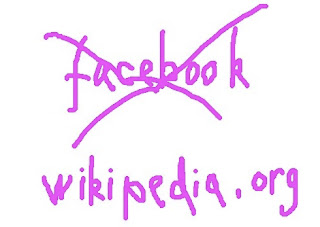
(Click here if you are interested in hearing the musical version of this interview.)
_________________________________________
Yes, I am even more serious about writing and making The Bird Room than I was when I answered your last question. I'm going to have a go. I downloaded a dodgy copy of Final Draft the other day, and so far I've written about 10mins. My 'pitch' to prospective financiers would be something like "Lars Von Trier meets Peep Show". Have you seen Peep Show? It's a very good British comedy. Brandon Scott Gorrell sort of mentions it but not really in 'Night Owl'.
PK: I haven't ever seen Peep Show. I will try and see it when I get back to the states in July.
I think Sombrero Fallout would be a fun Brautigan novel to adapt. Personally, I like the story from Revenge of the Lawn - I think it's from there - about a couple poor kids making Kool Aid in their backyard. That seems like my kind of story. It's realistic and it's got kids. For some reason, a movie with kids just coming of age seems like something I'd have the patience to make - you don't really know if the kids will be able to pull it off, and you still got the adventure of going through the story and making it long enough for a feature. I like projects with risks.
You ever feel like that?
CK: I know I wanted to say something about 'controlled risks'. I think I like the idea of a project where there are restrictions, or where there is a 'framework' or something, but then within that you can take more risks because they are related to the original framework. Like you set yourself rules in order to break them. And that could be a film or a novel or whatever. I'm not sure if that makes sense. I'm not sure if i can make it make sense. Sorry.
I don't think I would like to work with children. Maybe CGI ones. I don't know.
Please make a full length Brautigan movie. I want to see one. I don't care which one.
I don't think Peep Show is on in America. It's British. You might be able to order it in though, or something.
PK: Recently, you've been recording songs under the moniker, The Miniature Swans. What were the controlled risks involved in this project?
CK: Yes. The Miniature Swans. This was an attempt to do 'actual' songs, with the idea of eventually getting some other people in to help me play them and, you know, change them round and write new ones. I'm still in the process of recruiting some more swans, though. I want two or three other swans.
As far as controlled risks go, I think the 'framework' was: sing in a kind of monotone so you don't embarrass yourself too much, write words or phrases that are not normally sung in songs, try and write songs that will make two or three specific people you know smile a bit when they hear them but maybe also think, 'okay, these aren't just silly, they're actually alright as songs too.' I don't know how well I've succeeded so far. I don't know how many risks I've taken, either. It feels a bit tame still. When there are more swans involved, I like the idea of it sounding like a band falling apart, but just about hanging together. Like if people saw us, half the spectacle would be a kind of secret worry from the audience that we don't know what the fuck we're doing, and each time we get to the end of a song, there's a collective mild feeling of relief and euphoria that we didn't stop halfway through or completely mess up or fall over or something.
PK: That sounds like a fun project. Will The Miniature Swans be performing at your reading series in Manchester, No Point in Not Being Friends?
CK: Yes, I hope so. I would like the Miniature Swans to implode in front of a room full of people at one of the No Point in Not Being Friends nights, and make everyone feel embarrassed and uncomfortable for a bit. That would be fun. We'll see. Things with the band are going very slowly, though. At the moment it's just talk, and some keyboards I bought off eBay.
 Chris Killen was born in 1981, and is currently living in Manchester, England. His first novel, The Bird Room, is to be published by Canongate Books, January 2009. He was also recently appointed a writing fellow at the University of Manchester. He has published a lot of short things online, which are linked to on his blog: www.dayofmoustaches.blogspot.com
Chris Killen was born in 1981, and is currently living in Manchester, England. His first novel, The Bird Room, is to be published by Canongate Books, January 2009. He was also recently appointed a writing fellow at the University of Manchester. He has published a lot of short things online, which are linked to on his blog: www.dayofmoustaches.blogspot.com

